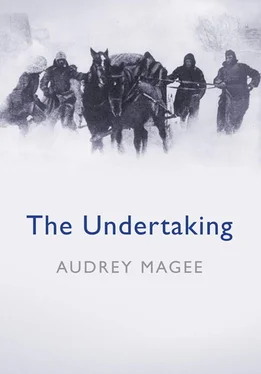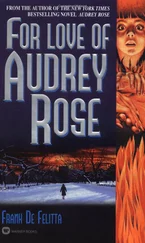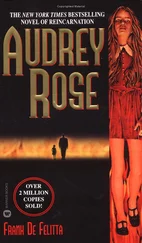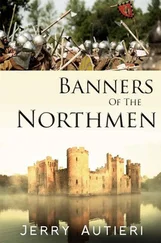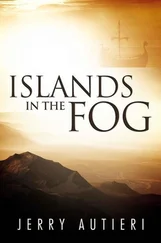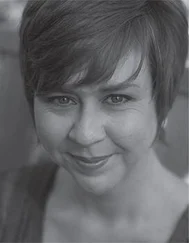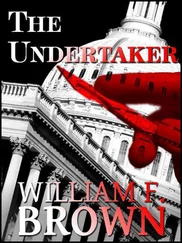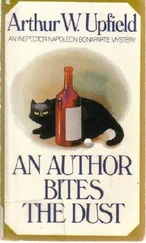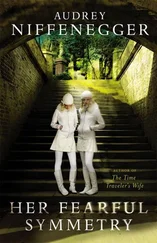He drew heavily on the cigarette.
‘So where will you go, Peter?’
‘Away.’
‘Will you stay in Germany?’
‘No. Somewhere different.’
‘Like where?’
‘Somewhere there was no war. Ireland maybe.’
‘It’s supposed to be very beautiful.’
‘There are no forests, and it might be a good place to think.’
‘About what?’
‘About nothing, Katharina. I want to think about nothing.’
They fell silent.
‘Will you come with me, Katharina? We could start again.’
‘With my son?’
‘No. By yourself.’
‘Then no.’
‘You’re my wife. He’s not my son.’
She touched the door handle.
‘I promised you that I would wait for you, Peter. I have done that.’
‘And that’s it? That’s all it was? A promise? An undertaking?’
‘So it seems.’
‘I still want to be with you.’
‘No, you don’t.’
‘I pledged myself to you, Katharina.’
‘We pledged ourselves to a lot of things, Peter.’
He offered her another cigarette. She took it and sat on the end of the bed beside him, a gap between them.
‘How do you think it will be living in Ireland?’ she said.
‘Easier than here.’
‘I wonder if it is,’ she said.
‘What do you mean?’
‘Germany is so hated, Peter. It must be horrible to be German in another country.’
‘I don’t know. I suppose I’ll find out.’
‘Would you like some food to take with you?’
‘If you have any to spare, yes, that would be very kind.’
They returned to the kitchen and she crouched beside her son, to help him with his homework. Faber looked away, staring out the kitchen window at the fading afternoon, at the grocer stacking wooden crates. He saw Mr Spinell come down the hall, leaning heavily on a stick. The old man put a bag on the table and they shook hands.
‘You’re a strong man to have survived that. What work did they have you do?’
‘Felling trees.’
‘That explains how it’s such a powerful country. Forcing its prisoners to do something useful. Something for the country. We should have done that instead.’
‘I hate the place.’
‘It’s the future, Peter. I’ve started to learn the language.’
Mr Spinell sat down, slowly.
‘There’s meat, bread and vegetables. Lovely tomatoes.’
Katharina began to prepare a sandwich, quizzing her son’s spelling as she chopped the tomatoes. Faber picked up his brown paper parcel.
‘Actually, don’t worry about food for me. I should be on my way.’
He shook Mr Spinell’s hand.
‘Send my regards to your wife, Mr Spinell.’
She opened the hall door for him. He kissed her on the cheek.
‘Goodbye, Katharina.’
‘Goodbye, Peter.’
She closed her eyes, shutting him out.
‘I’m sorry, Katharina. I thought it would have been different. I imagined it differently.’
‘We all did, Peter.’
She closed the door and he went slowly down the stairs, into the street. The wind whipped at his legs and neck, but he was used to colder weather, so he walked on, away, towards the train station, his shadow stretching in front of him.
I extend my sincere thanks to those who helped me at pivotal moments, Colm Tóibín, Ed O’Loughlin, Mark Brennock, Fergal Keane, Cathy Kelly and PJ Lynch; to those who shared their experience and expertise, Rebecca Miller and the Inge Morath Foundation, Margritt Engel, Graham Darlington, William Micklem, Patrick Redmond, Felicity O’Mahony and Anne-Marie Casey; to those soldiers who told and wrote of their experiences, most especially the late Werner Pilz and Adelbert Holl; and to those many historians, diarists and archivists on whose work I have drawn.
My thanks too to my teachers, Joan Dobbyn, Professor Hugh Ridley and Wilma Petters; and to The Times and The Irish Times for dispatching me on an extraordinary range of assignments – I remain grateful for those experiences and encounters.
I am grateful to all at Atlantic Books in London, notably Toby Mundy, James Roxburgh, Karen Duffy, Lucy Howkins, and the ‘Atlantic book club’, but particularly to editor-in-chief, Ravi Mirchandani – it has been a pleasure and a privilege. I thank also editor, Sara Holloway; editors Elisabeth Schmitz and Jessica Monahan at Grove Atlantic in New York; and Simon Hess and his team at Gill Hess in Dublin.
And thank you, Peter Straus; it has been an honour. My sincere thanks to everyone else at Rogers, Coleridge and White literary agency in London, particularly Margaret Halton and Stephen Edwards; and to Melanie Jackson in New York.
I am very grateful to my meticulous readers, Dr Yvonne Ivory and Mary Morrissy, and to my other friends, Fiona Fullam, Nuala Haughey, Bronwyn Ryan, Lorraine Stewart, Michael Walsh, Shibéal Megan, David Whelehan, Madeleine de Baréid, Cordelia Tuck and Ronald Doherty for their assistance.
I am especially thankful to my sisters – Ruth, for that very precious gift of time; Anna, for her unrelenting generosity – and to my brother, Robert, and his wife, Niamh O’Connor, for their extraordinary commitment and assistance. I am deeply indebted to my late father, John, for his enduring wisdom, and to my mother, Maeve, for her unstinting faith and support.
To my daughters, Laurie, Anna and Sally, thank you for all the life that you bring to mine. And to my husband, Johnny – my gratitude to you has no parameters, and no end.
AUDREY MAGEE worked for twelve years as a journalist and has written for, among others, The Times, The Irish Times , the Observer and the Guardian . She studied German and French at University College Dublin and journalism at Dublin City University. She lives in Wicklow with her husband and three daughters. The Undertaking is her first novel.
Praise for THE UNDERTAKING:
“To write a story that doesn’t allow for much sympathy, that keeps readers at a remove from the central characters, is one of the greatest challenges an author can undertake. That Magee succeeds as well as she does is impressive. Her terse style, cross-cutting between the narratives of Katharina and Peter, generates its own tension and momentum. Although Magee stays on the surface of things, she gives those surfaces traction and textures: The face of grief, dull and yet affecting… We can’t see inside Peter and Katharina, but, then again, history is partly the story of people who don’t look inside themselves.”
—Louise Thomas,
New York Times Book Review
“A common structural problem for a novel comprising two perspectives is that one tends to be more absorbing than the other. Not so here. Magee skillfully distributes equal weight, meaning equal pathos and intensity… Magee adds layer upon layer of moral complexity… Deeply impressive… Magee gives us an uneasy read, but it is hard to pull away. This is a devastating but quite stunning first novel.”
—Malcolm Forbes,
Minneapolis Star Tribune
“Irish journalist Magee’s first novel depicts with uncanny perception the rigors of war contrasted with life on the home front. Her compelling but realistic love story presents characters for whom most readers will feel little sympathy because of their unquestioning belief in the German cause, yet the story is all the more fascinating as related entirely from the Nazi viewpoint. Highly recommended; this is one of the most riveting accounts of love in time of war that this reviewer has ever read.”
—
Library Journal (starred review)
“A bold, honest novel about Nazi greed and moral blankness… Magee’s cool, precise tone recalls Hans Fallada’s Alone in Berlin, and, like Heinrich Böll, Magee is haunted by the everyday and the small people who are inseparably part of a great ravagement.”
Читать дальше
